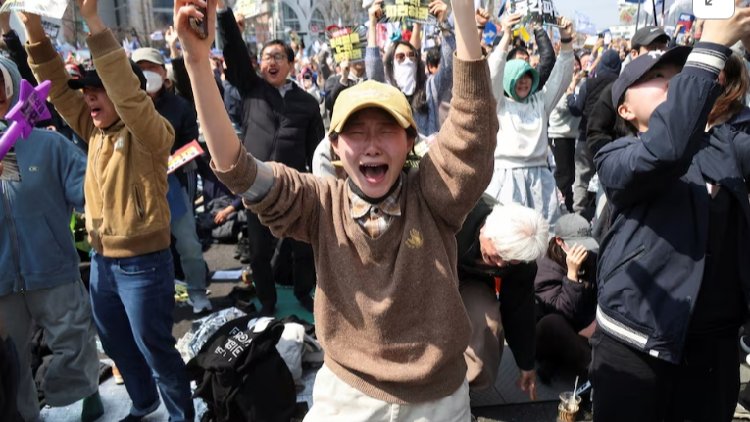Court Upholds Impeachment of S. Korea's Yoon Following Martial Law Declaration
South Korean President Yoon Suk-yeol was removed from office by the Constitutional Court on Friday, which validated parliament's impeachment motion related to his declaration of martial law last year. This decision has led to the most significant political crisis in the country in decades.

This ruling concludes months of political instability, which has overshadowed efforts to engage with the new administration of U.S. President Donald Trump amid slowing growth in Asia's fourth-largest economy.
Following Yoon’s removal, the country's constitution mandates that a presidential election be held within 60 days. Prime Minister Han Duck-soo will serve as acting president until a new leader is inaugurated.
"The Constitutional Court's unanimous ruling has removed a major source of uncertainty," stated Professor Leif-Eric Easley of Ewha University in Seoul to Reuters.
Acting Chief Justice Moon Hyung-bae commented that Yoon acted beyond his constitutional powers with his December 3 martial law declaration, declaring it "a serious challenge to democracy."
He further remarked that Yoon "committed a grave betrayal of the people's trust who are the sovereign members of the democratic republic," noting that the martial law declaration resulted in chaos across various sectors of society, including the economy and foreign relations.
At a rally that included thousands of people, many of whom had camped out overnight, attendees erupted in cheers upon hearing the ruling, chanting "We won!"
With this ruling, Yoon becomes the second leader in South Korean history to be impeached by the court, following Park Geun-hye in 2017. After weeks of intense hearings, the judges deliberated the case for over a month as public unrest escalated.
The decision emphasizes "first and foremost the resilience of South Korean democracy," according to Son Byun-hwan, a professor at George Mason University, who told AFP.
He added that "the very fact that the system did not collapse suggests that the Korean democracy can survive even the worst challenge against it – a coup attempt."
James del Carmen for TROIB News
Find more stories on Business, Economy and Finance in TROIB business












